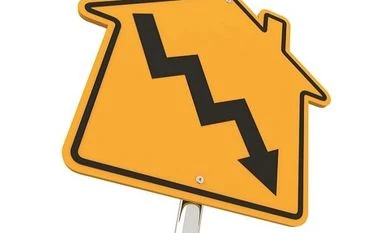At 02:57 pm, Nifty PSU Bank index, the top loser among sectoral indices, was down 3.1 per cent at 1,207 points, as compared to a 0.67 per cent decline in the Nifty 50 index. The PSU Bank index hit an intra-day low of 1,204, its lowest level since July 21, 2006 on closing level basis. The index slipped below its previous low of 1,218 touched on March 13, 2020 on the NSE.
Among individual stocks, State Bank of India (SBI) was the top loser, hitting a 52-week low of Rs 168.80, tanking 6 per cent in the intra-day trade. Bank of Baroda (BoB) hit a multi-year low of Rs 44, down 4 per cent. Bank of India, Punjab National Bank (PNB), Union Bank of India and Canara Bank were down in the range of 2 per cent to 3 per cent. The PSU banks trade at a P/B of 0.8x, below their historical average of 1.2x.
According to Motilal Oswal Securities, the public sector banks (PSBs) have a relatively higher share of exposure in the small and medium-sized enterprises (SME) segment, and thus, asset quality should remain under pressure in the near term. The brokerage firm expects credit cost trends to remain elevated.
"The outbreak of Covid-19 has further weakened credit growth of PSBs. Thus, loan growth is likely to moderate to 8 per cent for SBIN and to 7 per cent for BoB over FY21E. On the other hand, liability franchise remains stable with surplus liquidity being available with banks. PSBs are expected to be big beneficiaries of the state government’s deposit outflows from mid-size/smaller banks post the YES Bank episode, the brokerage firm said in a note.
Meanwhile, BOfA suggests, PSBs will need between Rs 52,990 crore to Rs 113,550 crore ($7 billion – $15 billion) in recapitalisation going ahead, which can be funded by the government despite the limited fiscal room. The brokerage suggests the government issues recapitalisation bonds and/or utilise Reserve Bank of India’s (RBI’s) revaluation reserves. CLICK HERE TO READ FULL REPORT
To read the full story, Subscribe Now at just Rs 249 a month
Already a subscriber? Log in
Subscribe To BS Premium
₹249
Renews automatically
₹1699₹1999
Opt for auto renewal and save Rs. 300 Renews automatically
₹1999
What you get on BS Premium?
-
Unlock 30+ premium stories daily hand-picked by our editors, across devices on browser and app.
-
Pick your 5 favourite companies, get a daily email with all news updates on them.
Full access to our intuitive epaper - clip, save, share articles from any device; newspaper archives from 2006.
Preferential invites to Business Standard events.
Curated newsletters on markets, personal finance, policy & politics, start-ups, technology, and more.
Need More Information - write to us at assist@bsmail.in
)